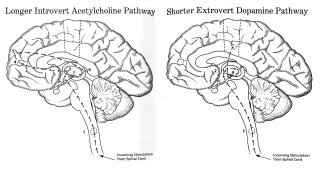So much ado has been made of the various philosophical, ethical and logistical vulnerabilities inherent in the Steemit model that there should really be some sort of downvote: redundant option. In just a few short months, entire categories' worth of posts have been written about Steemit's flaws, prompting another entire subcategory's worth of posts dismissing the original posts as "entitled" and "whiny" and "missing the point," which variously then trigger their own individual rebuttals in the form of sub-subthreads and sub-sub-subthreads extending virtually ad infinitum.
The fundamental argument at the core of these posts is that Steemit is geared disproportionately towards individuals who are extrinsically motivated. Extrinsic versus intrinsic motivation, which defines how a person is most efficiently compelled to act - either by the promise of some outside reward (in this case, an upvote tip), or because of their own interests, convictions, or passion - has come to be the defining dichotomy by which most Steemit "philosophers" view the nascent population.

On the surface this would sound like an easy, intelligent-sounding interpretation for the sometimes messy dynamic that has developed between Steemians who are seemingly highly preoccupied with their "ROI," and those who are mostly in it for the fun and experimentation and who appear to not really care one way or the other...because they appear to have invested hardly anything at all. Individuals who protest the visibility and reward system on Steemit are normally dismissed as being overly obsessed with financial gain and given a brief supercilious lecture on how "money's not the point," as per theory protocol.
When attempting to apply this theory to a specific user, however, this misses the mark almost as often as it hits. To make a case study out of the extrinsic/intrinsic motivation binary, one would expect your average Steem writer to be drawn to the platform by virtue of its nature as a source of income: in this theory, the appeal even for the intrinsically-driven is the novelty of Steemit's platform - that novelty factor, ultimately, can be traced largely to its micropayment model. While there are certainly plenty of those entrepreneurial types running around, this premise is overly reductive and fails to account for an entire subpopulation of Steemians who are no less motivated but simply value a different currency: emotional currency.
Another more precise method of classifying personality traits, the Myers-Briggs Type Indicator is a self-assessment test based on the work of analytical psychologist Carl Jung. The Myers-Briggs matrix is composed of 4 dichotomous pairs - introversion/extroversion, sensing/intuition, thinking/feeling, and judgment/perception - which form the 16 core personality types; these are expressed in acronym form, eg. INFP. This system of personality assessment (while flawed) provides a much better vantage point view onto the vast landscape of human motivation and behavior.

Two of the dichotomies, judgment/perception and sensing/perceiving, can in some individuals combine to form one particular axis of the Myers-Briggs matrix: Sensing/Judgment. These SJ individuals experience a strong emotional reaction to the observation of inequality or injustice - they have a keen sense of right and wrong, and depending on their introversion or extroversion will react accordingly. The Steemit platform has inequality built into it, inadvertently or otherwise, in a number of ways (which for the purposes of this article and the as-of-yet-nonexistent downvote: redundant button I won't go into). To an SJ, this is intolerable on a gut level even if they are able to reconcile it intellectually. Many SJs, particularly extroverts, will react by speaking out against the inequity inherent in the Steemit reward system - the "lottery" effect, the difficulty in getting traffic beyond the first 30 minutes of a post's publication, the massive sway that the few whales hold over the rest of the community - in an attempt to rectify the imbalance...not for their own financial benefit, but because of their own intrinsic sense of justice. The "money's not the point" speech is completely pointless in this instance since these people are not motivated by money in the first place: they are trading in emotional currency.
A second Myers-Briggs axis formed by the combination Feeling/Perceiving describes individuals who are highly sensitive, empathetic and intuitive. They thrive on intellectual and emotional interaction with other people and on the exchanging of ideas and experiences. For FP individuals, especially those with a tendency towards introversion, Steemit offers them the opportunity to share heartfelt stories, long-dreamt dreams , or any number of other personal thoughts and memories...posts in which they're invested a great amount of feeling and energy. And here, too, the speech falls on deaf ears.

Because of its micropayment feature, Steemit offers a modest financial incentive which makes it a new and different option from Facebook and Reddit - but for a Feeling/Perceiving individual the monetary aspect is inevitably secondary to the emotional payout of being read and recognized, of forming meaningful connections through their writing...and of knowing that their story was at least given the same chance of an audience as the one-line meme posts and the plagiarized articles that still got upvotes.
Viewing Steemit from an economic perspective, it may make sense to argue that each post is worth "whatever the market will bear" according to the capitalist mantra - whether that means that a one-liner or plagiarized post is worth $1,000 and a passionate, from the heart autobiography deserves maybe a dollar twenty. However, it's relatively widely accepted that Steemit isn't intended to be strictly capitalistic, and that it should aim to emulate the natural ecosystem of a non-incentivized social media platform. In a natural, cooperative social network where interaction and relationship-building is the sole (or at least primary) intention, posts are generally liked or upvoted based on a collective intuitive sense of its meaningfulness to the author as well as its appeal to the reader.
Conclusion: devaluing the emotional currency that motivates so many of Steemit's writers will inevitably result in a mass exodus that will be hard to reverse.
This is really good analysis. Sad it didn't get much attention.
Downvoting a post can decrease pending rewards and make it less visible. Common reasons:
Submit
Congratulations @sarah.riedel! You have received a personal award!
Click on the badge to view your own Board of Honor on SteemitBoard.
For more information about this award, click here
Downvoting a post can decrease pending rewards and make it less visible. Common reasons:
Submit
Congratulations @sarah.riedel! You received a personal award!
You can view your badges on your Steem Board and compare to others on the Steem Ranking
Vote for @Steemitboard as a witness to get one more award and increased upvotes!
Downvoting a post can decrease pending rewards and make it less visible. Common reasons:
Submit